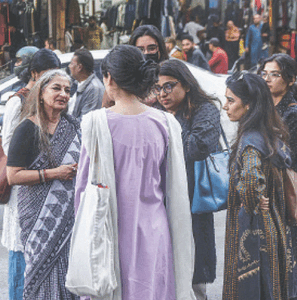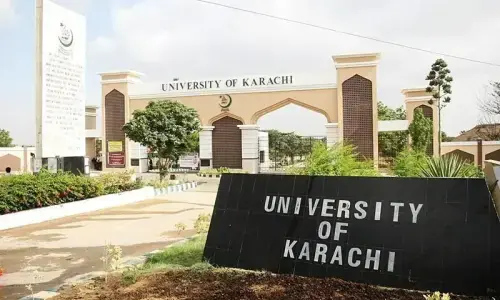KARACHI: Highlighting the close association between energy security and climate change, speakers at a workshop organised on Wednesday at a local hotel emphasised the need for promoting alternative and renewable energy solutions especially in areas more prone to climate change-induced disasters and with limited access to basic amenities.
The workshop marked the conclusion of a project titled ‘Introducing renewable energy solutions to enhance energy security and build climate resilience in Karachi’.
Launched in 2016, the project was implemented in Rehri, Mauripur, and Gadap Town by the World Wide Fund for Nature-Pakistan (WWF-P) with the financial support of Nordic Climate Facility of the Nordic Development Fund (NDF). The Karachi Metropolitan Corporation (KMC) and K-Electric were implementing partners.
The initiative successfully piloted innovative alternative and renewable energy solutions for over 2,000 households in these areas.
Speaking at the workshop, Dr Babar Khan, the regional head of WWF-P, Sindh and Balochistan, highlighted the importance of reliance on renewable energy and reduced use of fossil fuels.
“There is a close link between energy security and climate change. We need to join our efforts to shift from fossil fuels, the biggest cause of emissions and associated climate change, to cleaner and renewable energy resources,” he said.
Cities which were considered major economic and industrial hubs contributed about 70 per cent of total CO2 emissions, he added.
On the challenges Karachi faces, he said that much of its issues were directly linked to its growing population, putting pressure on already scarce resources, particularly energy supply.
“Promoting alternative and renewable energy solutions is the need of the hour. In this respect, the focus should be on peri-urban areas of Karachi as they are highly dependent on natural resources, have limited access to basic amenities and are prone to climate change-induced disasters,” he noted.
Deputy director of sustainability management at K-Electric Zehra Mehdi said that the organisation in its efforts to promote renewable energy resources in the city had generated 50 megawatts of renewable energy whereas 150MW would soon be added to overcome electricity shortages.
“The pilot project has been successful with promising results and is a big achievement,” she noted.
She described rapid increase in population and urbanisation as major challenges, increasing the demand for energy, water and other basic needs.
About K-Electric’s green initiatives, she said that 120,000 native plants had been planted across the city in 2017 and 2018 under the Plant for Pakistan campaign.
Sharing community perspectives on the project, Mohammad Ibrahim Jat, a resident of Rehri, said that shifting to biogas had helped people save significant quantities of wood and cooking time of women as well as reduced their exposure to smoke.
Khuda Ganj, a resident of Mubarak village, said that they never had access to electricity in their houses before and people usually used a small torch or candle for illumination at night.
“We now feel safe as there is no fear of snake or scorpion bites at night. Our children can now also study at night and women have extra time for embroidery and patchwork that helps them generate additional income to support their families,” he added.
Hamera Aisha, project manager at WWF-P, informed the audience that 1,650 home-based solar units were provided to people in 27 off-grid villages of Gadap Town and Mauripur while 960 households had been provided with fuel-efficient stoves and gasifiers.
“Twelve communal biogas plants, an alternative energy source, have been provided for 41 households in Rehri. These initiatives not only promote adoption of renewable energy, but also have helped in creating a healthy environment and livelihood opportunities for locals,” she said.
Technical adviser at WWF-P Muhammad Moazzam Khan, deputy general manager of outreach and engagement at K-Electric Usman Moeen, and director of alternative energy at energy department government of Sindh Mehfooz Kazi also spoke.
Published in Dawn, April 11th, 2019

































